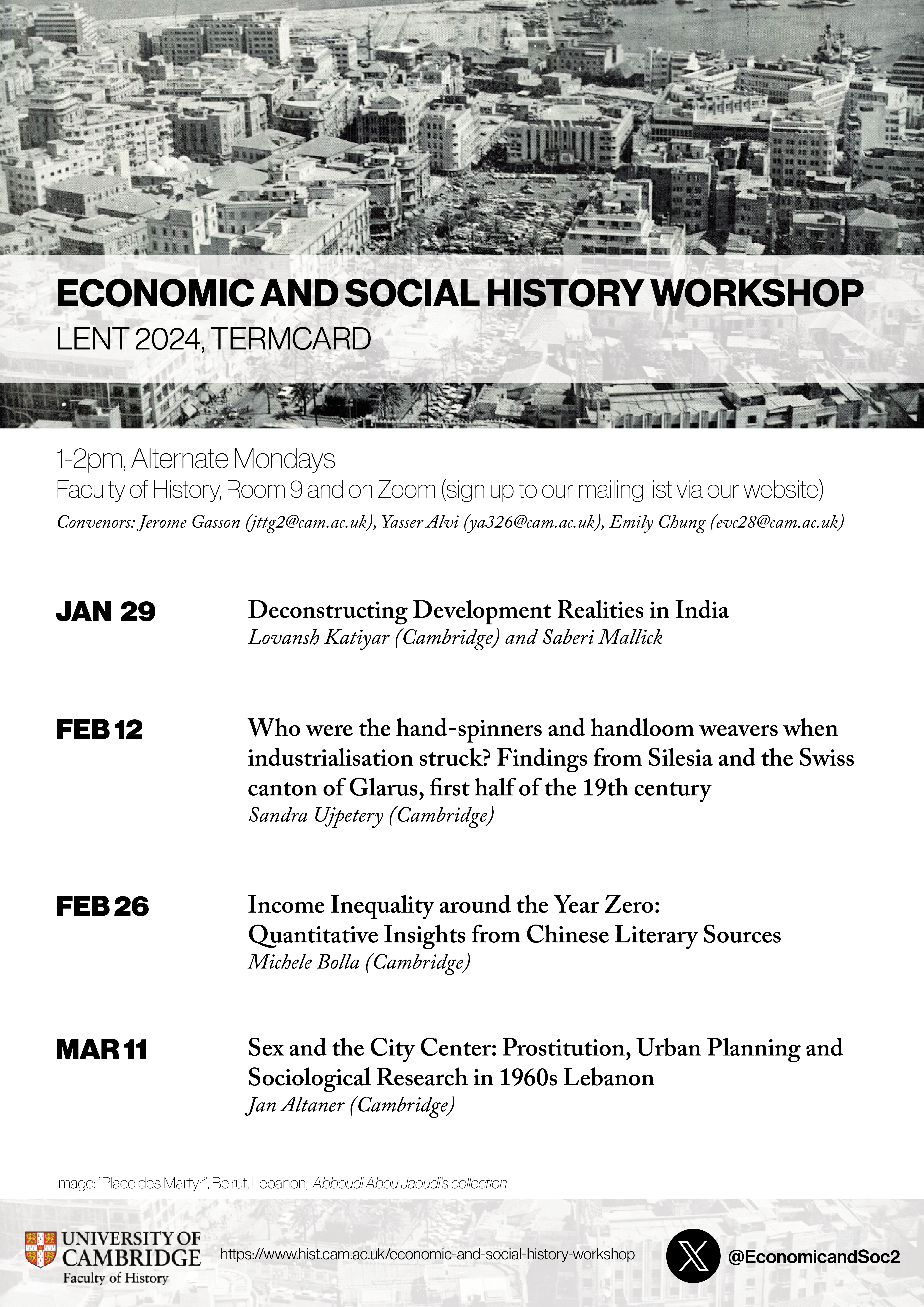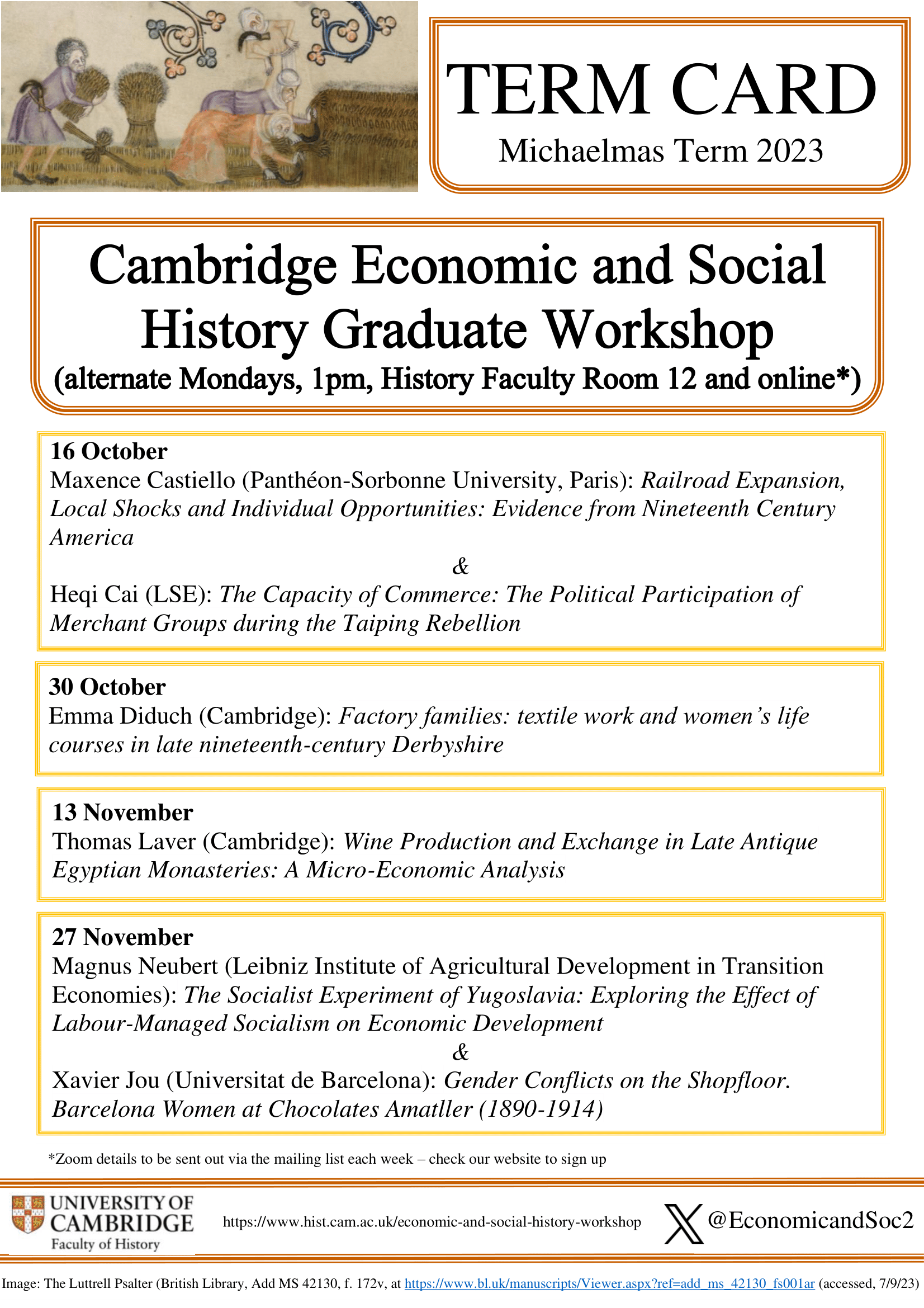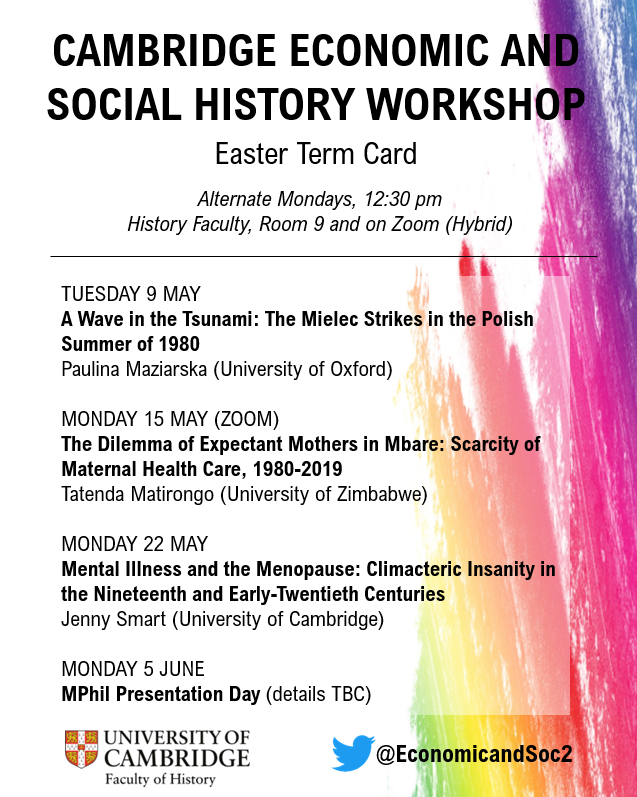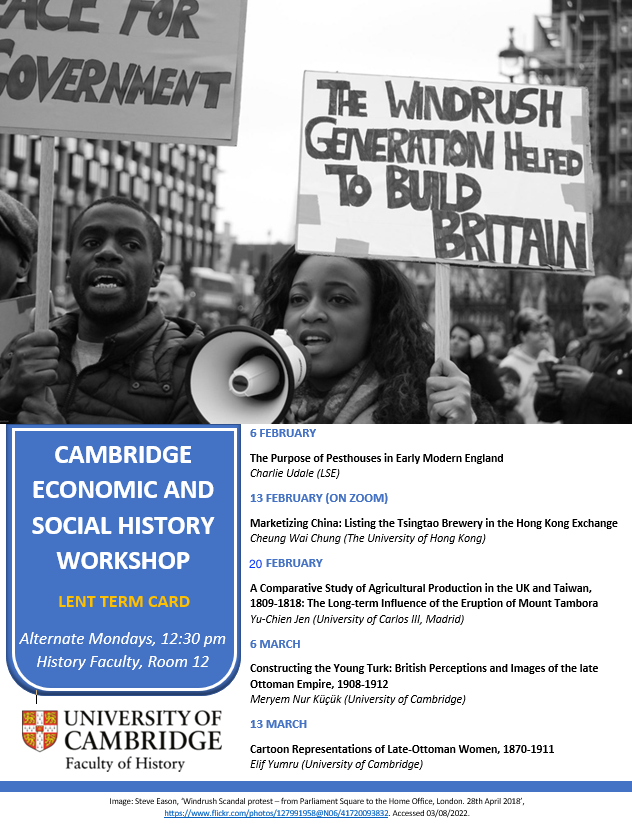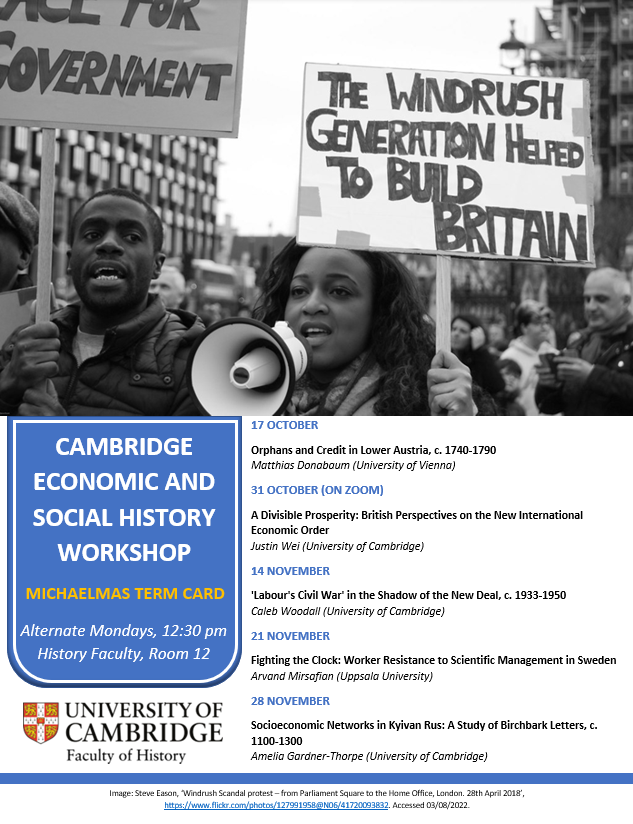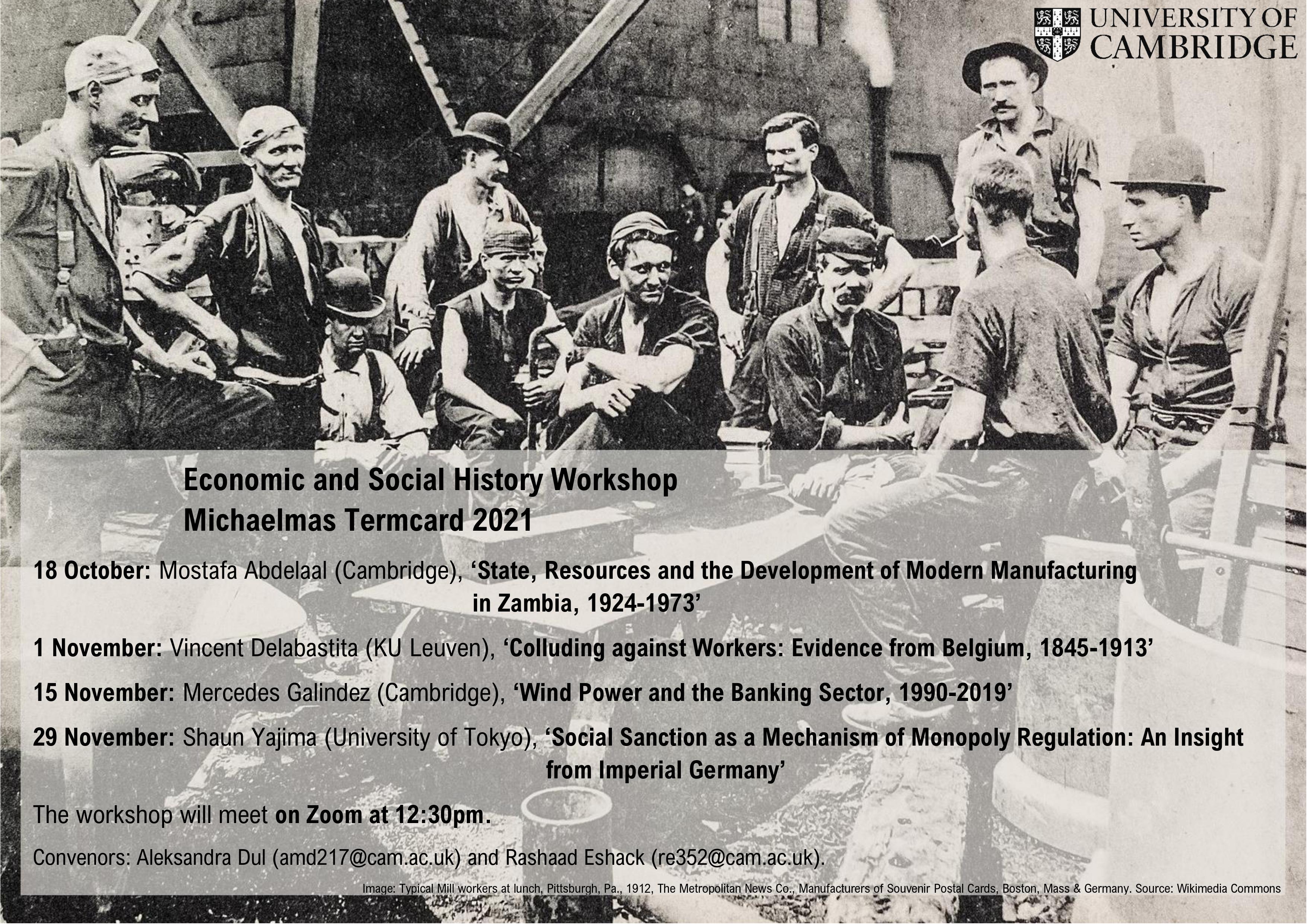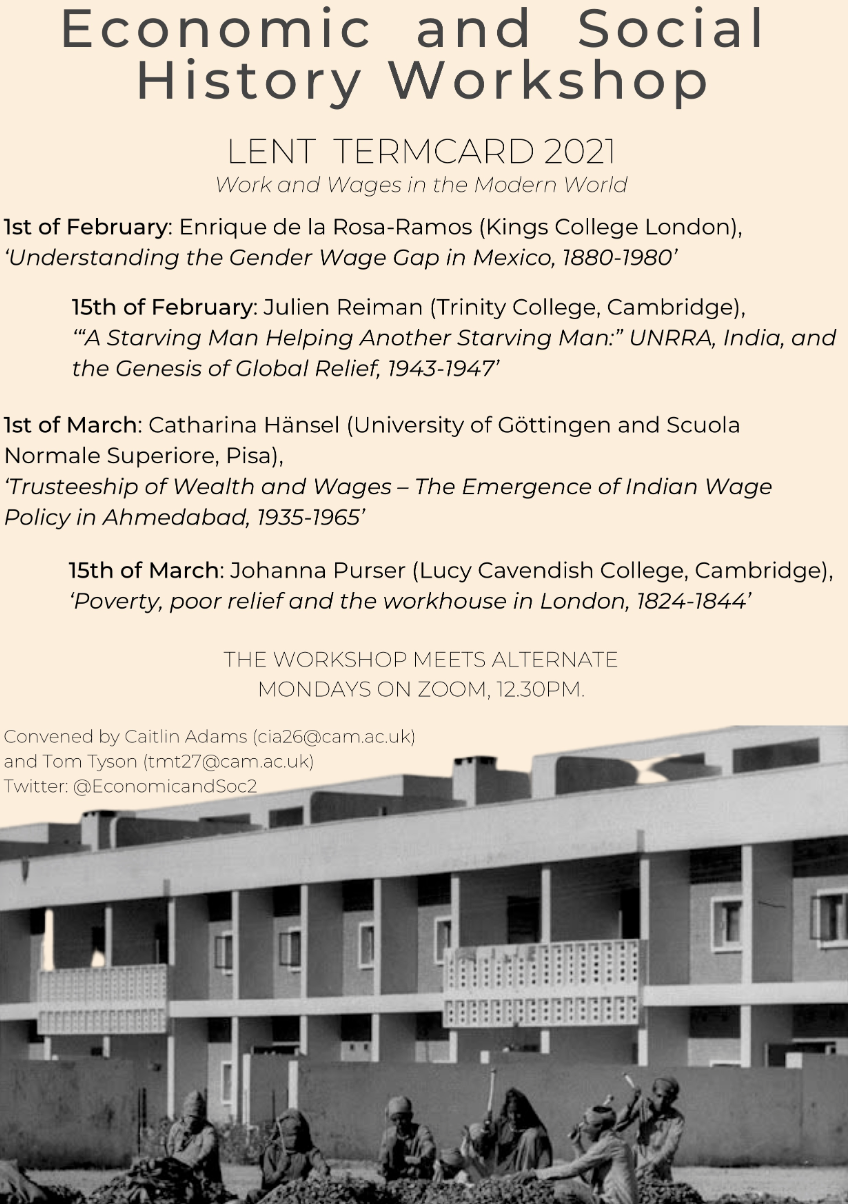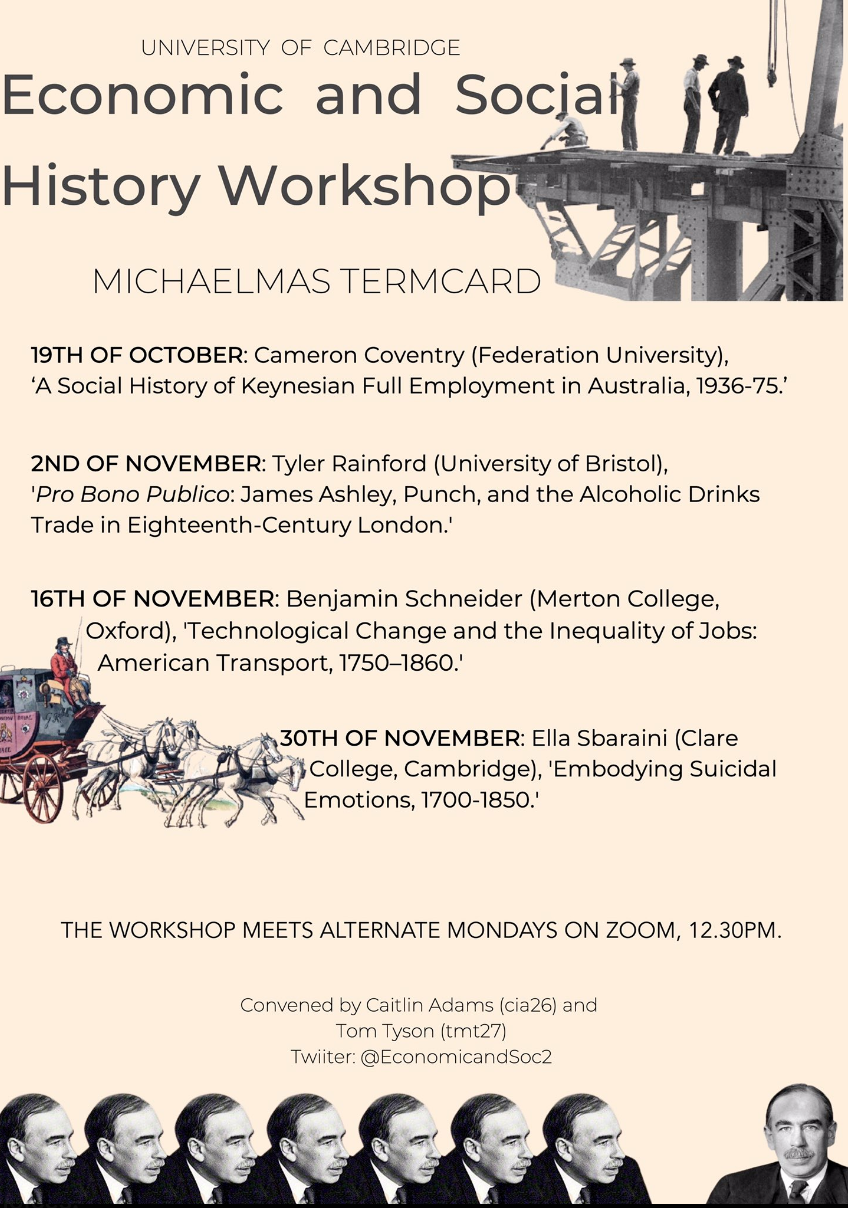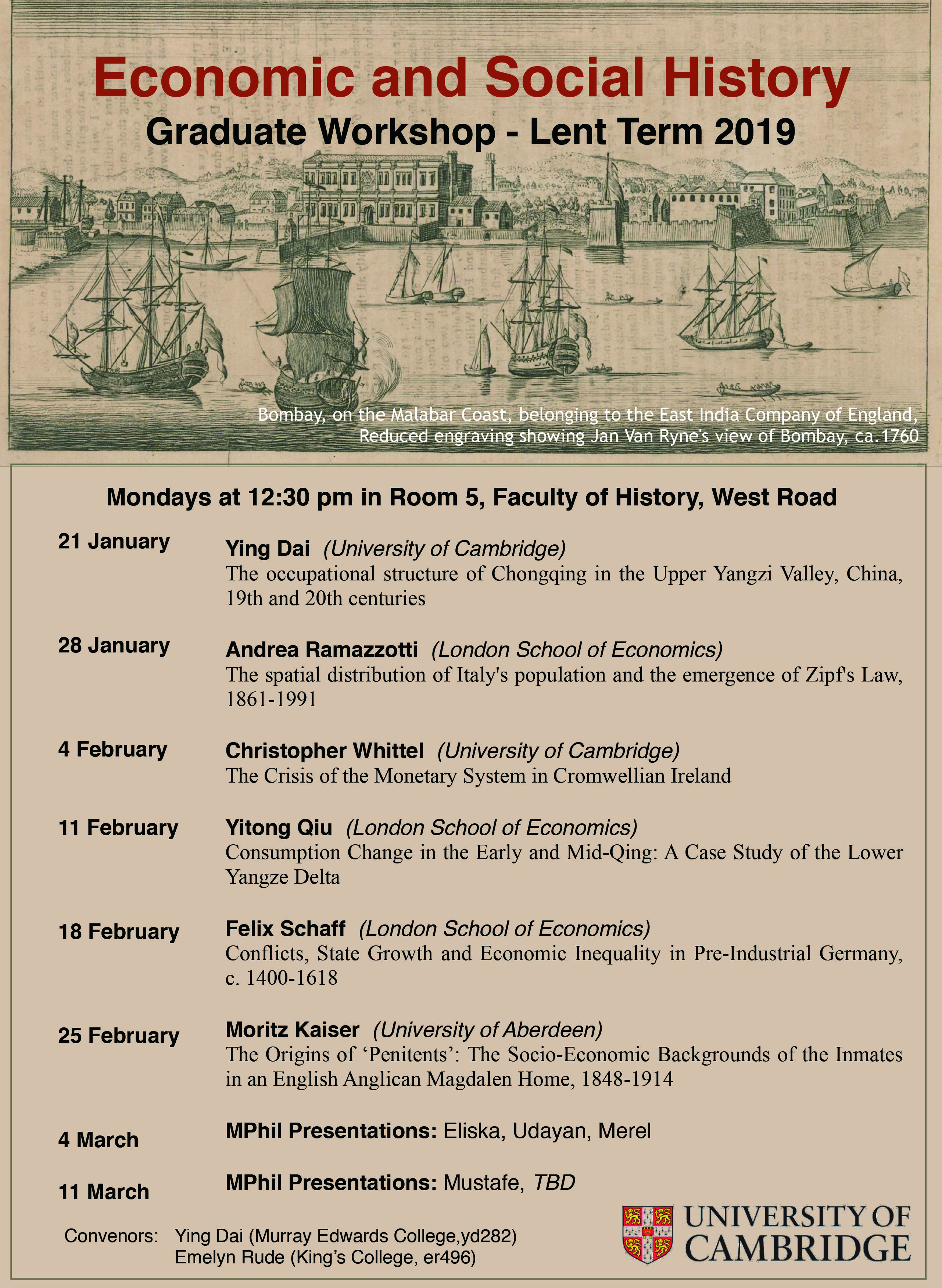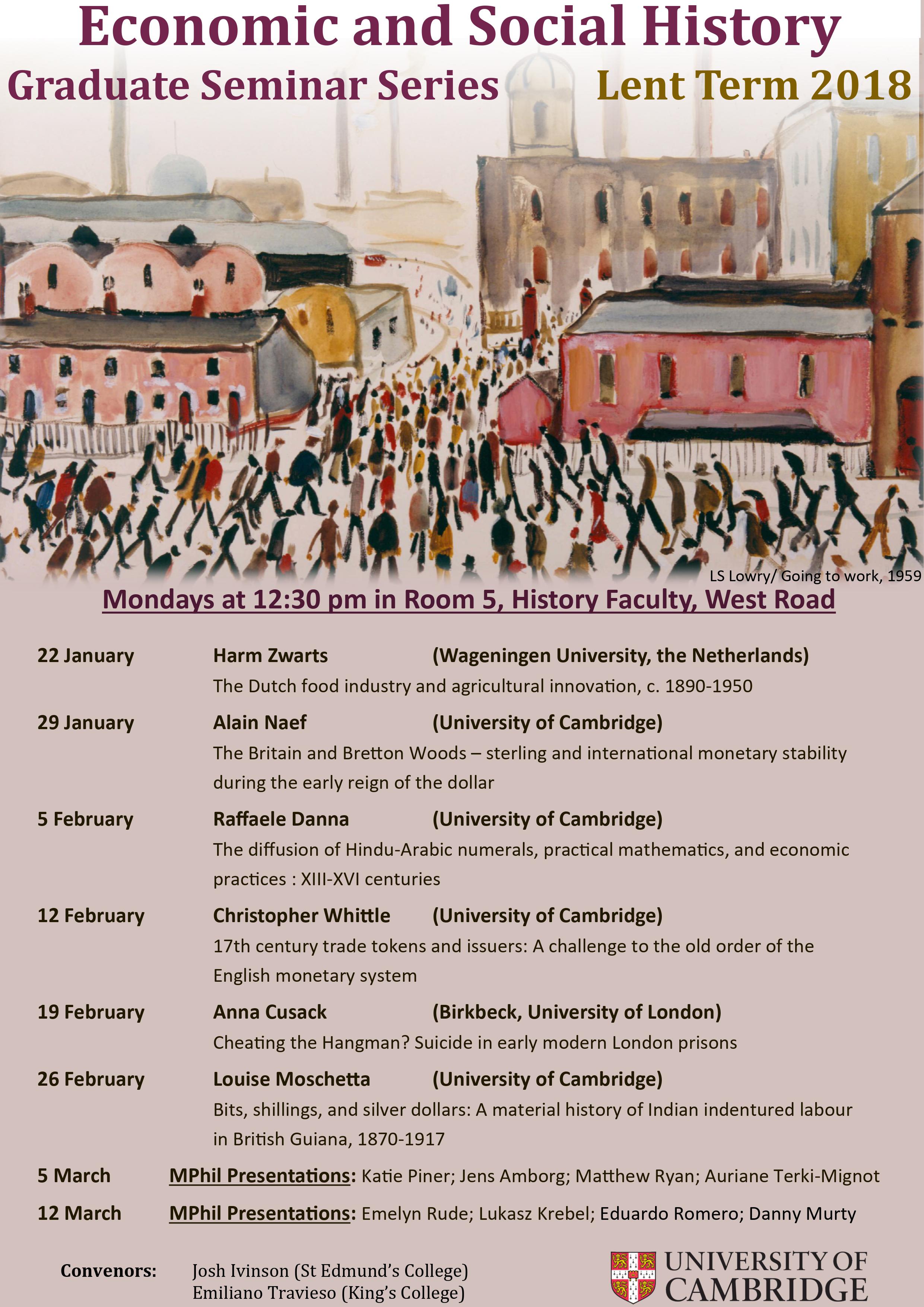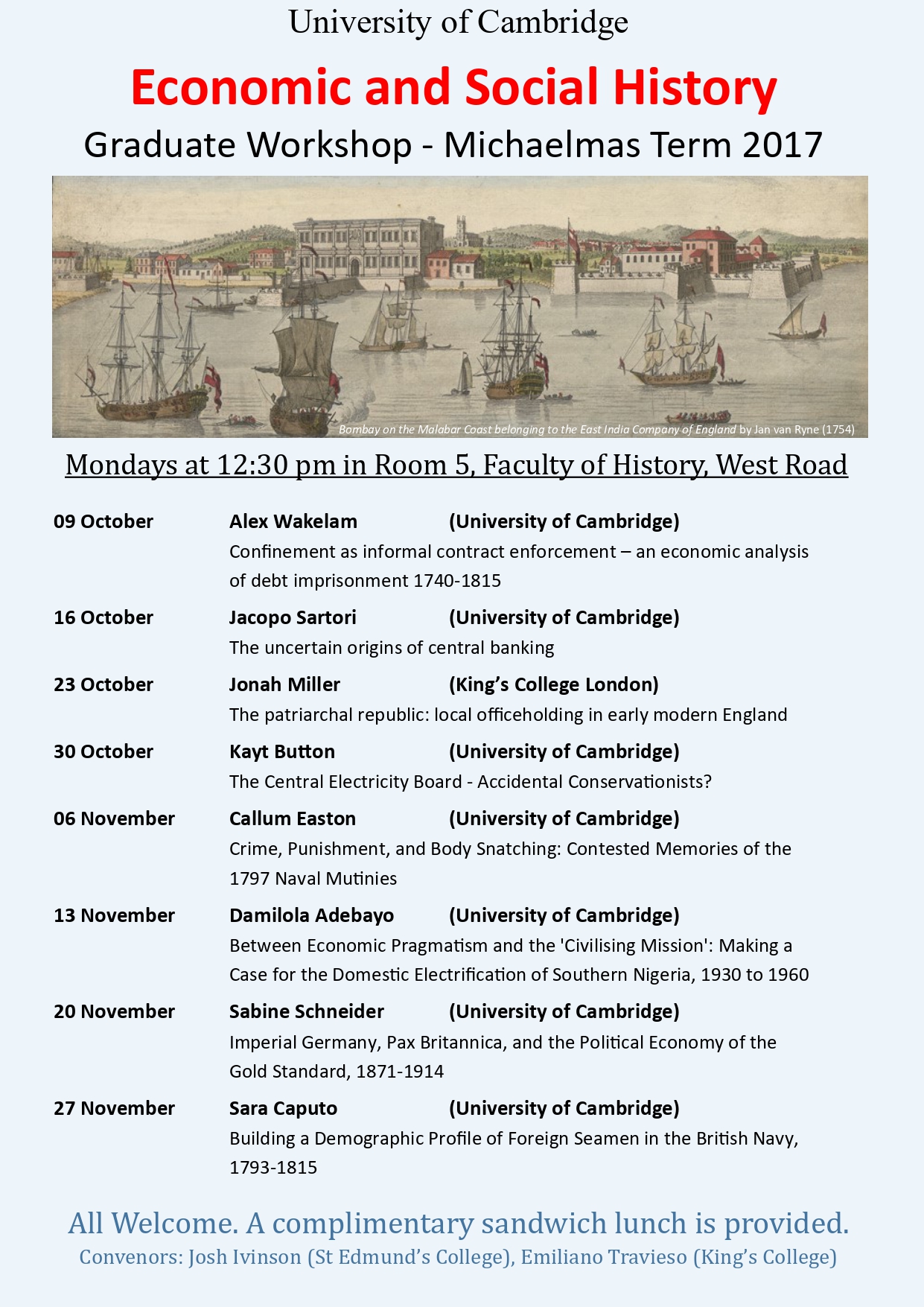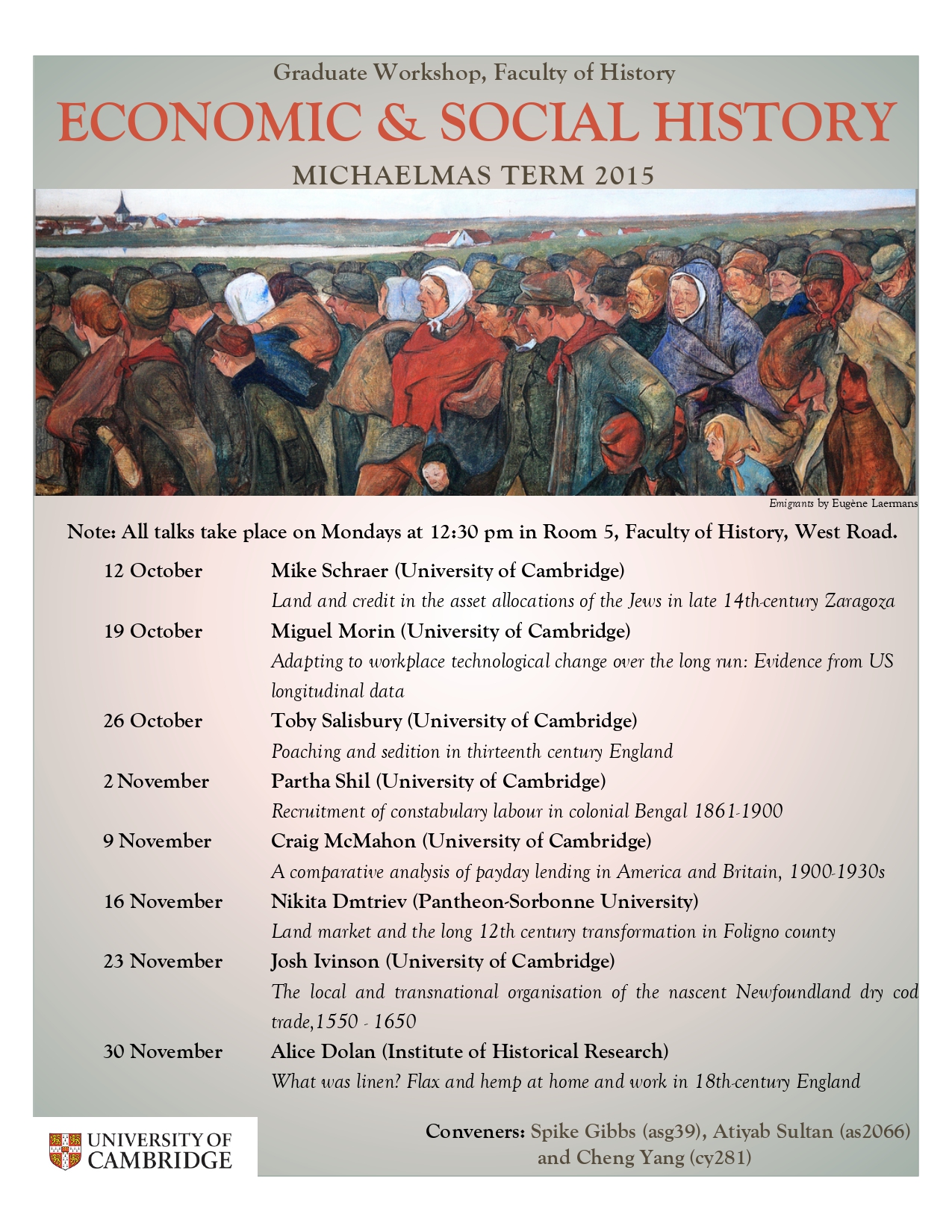Economic and Social History workshop
Call for papers! If you are a current MPhil in Economic and Social History, and you would like feedback on a chapter of your dissertation, please let us know. We have available slots for 20 minute papers on 3 June, 10 June and 24 June.
The economic and social history workshop fosters discussion on a range of social or economic topics from any time period or geographic region. Our normal format involves c.20 minute papers followed by half an hour of questions and discussion. We feature papers that consider any aspect of social or economic policy, historical demography, political economy, labour movements, financial institutions, or histories of poverty and welfare. All papers are by postgraduate students, and preference will be given to those from the University of Cambridge, but scholars from elsewhere around the world are more than welcome. The workshop provides a friendly, collaborative environment, and are usually also attended by a senior member of the Faculty to respond to the paper and offer constructive feedback. Attendance by students on the Economic and Social History MPhil is expected, and we encourage MPhil students to present works-in-progress in Easter Term. The current co-convenors are Jerome Gasson (jttg2@cam.ac.uk), Yasser Alvi (ya326@cam.ac.uk), and Emily Chung (evc28@cam.ac.uk) - do get in touch with us if you'd like to share your work next term, or if you would like to help convene the workshop.
We meet 13:00-14:00 on Mondays during term in room 9, with refreshments provided :)). Full details are to be provided on the term card and via our mailing list, which you can join here.
Some previous term cards from the archive:
